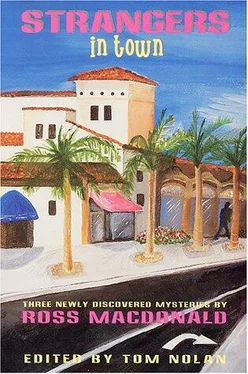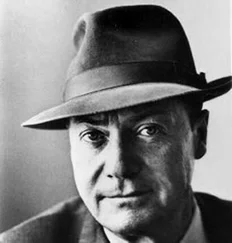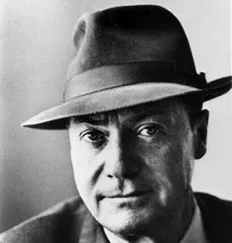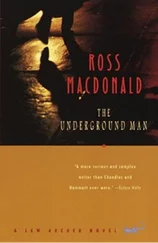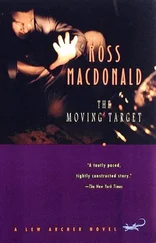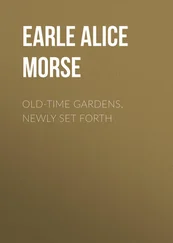The first sentence pulls the reader immediately into Archer's narrative, and into his would-be client's nightmare. Throughout the text, the writer's technique is deft, his humor nicely wry, his symbolism striking.
Note thwarted Jerry, who neglects his pretty Zinnia to cultivate inhuman blossoms — only to end sprawled amongst those blooms, "a fine funeral display."
Note the contrast between the psychiatric social worker (Mr. Parish, a secular priest) in his shabby office, helping the needy and the truly sick ("my family") — and the Beverly Hills psychiatrist in his glossy quarters, catering to the neuroses of the idle rich.
Note the artful foreshadowings ("I can't turn the police on him… They'd shoot him down like a dog") that are also psychological clues, and that make second readings of Macdonald works uniquely rewarding.
Nelson Algren was an author important to Millar/Macdonald in the 1940s and '50s. The Ivory Grin (built from "Strangers in Town") was written under the influence of Algren works like The Man with the Golden Arm. The penultimate paragraph of "The Angry Man" may sound an echo of an Algren short story Ken Millar much admired, one where the hapless victim insists he was only going out to buy "A Bottle of Milk for Mother."
In "The Angry Man," Archer learns from Mr. Parish a little about how to see beyond a simplistic, good-and-bad worldview. In The Doomsters (which grew from this novelette), the detective — propelled by events in the author's own life — would learn a good deal more.
The Doomsters would prove a milestone on the road of Ross Macdonald's mature vision, a road he was already well along when he penned "The Angry Man."
Looking back in 1976 on the life of the fictional private eye who first came to the page pseudonymously as Joe Rogers in 1945, Ross Macdonald judged: "Archer just wasn't as well done as Spade or Marlowe. It took him a while to develop into anything substantial. The real change in him, I think, occurred in The Doomsters ; he became a man who was not so much trying to find the criminal as understand him. He became more of a representative of man rather than just a detective who finds things out."{" 'Archer just wasn't as well done' ": Clifford A. Ridley, "Yes, Most of My Chronicles Are Chronicles of Misfortune," National Observer , July 31, 1976.}
I thought at first sheer terror was his trouble. He shut the door of my office behind him and stood against it, panting like a dog. He was a gaunt man in blue jeans almost black with sweat and dirt. Short rust-colored hair grew like stubble on his hatless scalp. His face was still young, but it had been furrowed by pain and clawed by anger.
"They're after me. I need help." The words came from deep in his laboring chest. "You're a detective, aren't you?"
"A sort of one. Sit down and take a little time to get your breath. You shouldn't run up those stairs."
He laughed. It was an ugly strangled sound, like water running down a drain. "I've been running all night. All night."
Warily, he circled the chair in front of my desk. He lifted the chair in a sudden movement and set it back to front against the wall and straddled it. His shoulders were wide enough to yoke a pair of oxen. His hands gripped the back of the chair and his chin came down and rested between them while he watched me. His eyes were narrow and blue, brilliant with suspicion.
"Running from what?" I said.
"From them." He looked at the closed door, then over his shoulder at the blank wall. "They're after me, I tell you."
"That makes twice you've told me. It isn't what I'd call a detailed story."
"It's no story." He leaned forward, tilting the chair. "It's true. There's nothing they wouldn't do, or haven't done."
"Who are they?"
"The same ones. It's always the same ones. The cheats. The liars. The people who run things." He went into singsong: "The ones that locked me up and threw the key away. They'll do it again if they can. You've got to help me."
He was beginning to disturb me badly. "Why do I have to help you?"
"Because I say so." He bit his lip. "I mean, who else can I go to? Who else is there?"
"You could try the police."
He spat. "They're in on the deal. Don't talk police to me, or doctors or lawyers or any of the others that sold me out. I want somebody working for me, on my side. If it's money you're worried about, there's plenty of money in it. I'll be rolling in money when I get my rights. Rolling in it, I tell you."
"Uh-huh."
He sprang to his feet, striking the wall a back-handed blow which left a dent in the plaster. His chair toppled. "Don't you believe me? It's the truth I'm telling you. I'm damn near a millionaire if I had my rights."
He started to pace, up and down in front of my desk, his swivelling blue eyes always watching me. I said:
"Pick up that chair."
"I'm giving the orders. For a change."
"Pick up the chair and sit in it," I said.
He stood still for a long moment, his face changing. Dull sorrow filmed his eyes like transparent lacquer. "I'm sorry. I didn't mean to fly off the handle. It's just when I think about them ."
"The chair," I said.
He stooped and picked it up and sat in it. "I'm sorry, Mr. Archer."
"I'm not Archer," I lied. "You've got me wrong."
His eyes blazed wide. "Who are you then? Archer's the name on the door."
"I keep Mr. Archer's books, answer his telephone for him. Why didn't you say you wanted Mr. Archer?"
"I thought that you were him," he answered dully. "A friend of mine, back where I came from, told me if I ever sprung myself — if I ever got here to L.A., that Mr. Archer would give me a fair throw if anybody would. Where is he?"
I countered with a question: "What's your friend's name?"
"He has no name. I mean I don't remember."
"Where did you spring yourself from?"
"It was a slip of the tongue. I didn't say that. Anyway, what business is it of yours? You're not Mr. Archer."
"Folsom? San Quentin?"
He was silent, his face like stone. After a while he said: "I'll talk to Mr. Archer."
"I'll call him for you." I reached for the telephone and started to dial a number. "Who shall I say wants him?"
"No you don't." His stormy mind had flashes of intuition. "I know what you're up to, ringing in the cops." He leaped across the desk and tore the phone from my hands. "And you are Mr. Archer, aren't you? You're a liar, too, like the rest of them. I come here looking for a fair throw and I get the same old dirty deal again. You're one of them , aren't you?"
I said: "Put the telephone back on the desk and sit down."
"To hell with you. You can't scare me. One thing, when a man goes through what I've been through, I'm not afraid any more. You hear me?" His voice was rising.
"They hear you in Glendale. Sit down and be quiet now."
He threw the telephone at my head. I ducked. The telephone crashed through the window and hung there on its wire. I reached for the upper righthand drawer of my desk, the one that contained the automatic. But he forestalled me.
"No you don't," he said.
His hand went into his pocket and came out holding a gun. It was a .32 Smith and Wesson revolver, nickel-plated. It wasn't much of a gun, but it was enough to freeze me where I stood.
"Put your hands up," he said. "Give me your word that you won't call the police."
"I can give it. It won't be worth anything."
"That's what I thought. You're a liar like the rest. Getaway from that desk."
"Make me. You're crazy if you think—"
He let out a yelp of fury. "I am not crazy."
He dropped the little revolver and reached for me. His hooked hands swung together and clamped on my throat. He dragged me bodily across the desk. He was tremendously strong. His pectorals were massively sculptured under the wet blue shirt. His eyes were closed. They had long reddish lashes like a girl's. He looked almost serene. Then water sprang out in little rows of droplets across his forehead. His iron fingers tightened on my throat, and daylight began to wane.
Читать дальше
